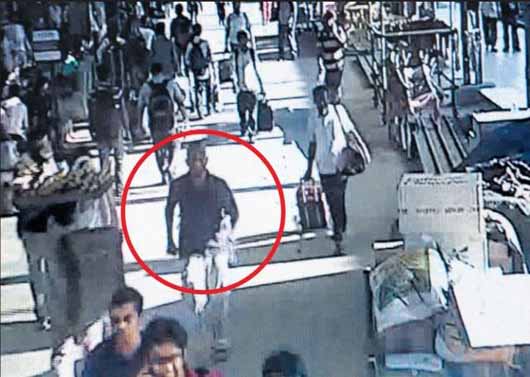
Chennai, May 3: In a find that could help crack the mystery behind the May Day twin blasts in a train at the Chennai Central railway station, the State police on Friday released the CCTV footage of a man running on the platform soon after the train’s arrival.
The Crime-Branch CID, investigating the blasts on board the Bangalore-Guwahati Express that killed a woman passenger and injured 14, disclosed here that the explosives planted in the train were similar to those used to trigger multiple blasts in Patna hours before the BJP’s prime ministerial candidate, Narendra Modi, was to address an ‘Hunkar rally’ on October 28, 2013.
The police’s announcement came after experts from the National Security Guards (NSG) inspected the scene and the materials seized from the damaged coaches.
Inspector-General of Police Mahesh Kumar Agarwal said remnants of clock pieces, batteries, metal pellets and a metallic pipe suggested that a timer device was used as the trigger. Releasing the footage, he said the “person’s movements were unusual and required verification.”
Crime Branch officials also confirmed that the train was running 90 minutes late and had it been on time, the bombs would have gone off after the train entered Andhra Pradesh. Mr. Modi addressed election rallies at five places in the neighbouring State on May 1, including Nellore, close to the Tamil Nadu border.
Any information on the man in the footage could be passed on to the CB-CID on (044) 2250 2500/10 or (0)77086 54202, he said. The man apparently got off the S-3 coach and ran away after the train arrived; we have not seen him getting into the train again,” Mr. Agarwal said.
He said the investigation so far had not indicated any link between the blasts and Zakir Hussain, a Sri Lankan national arrested by the State police three days ago.
Senior officials of the CB-CID rushed to Bangalore following a tip-off.






Comments
Add new comment